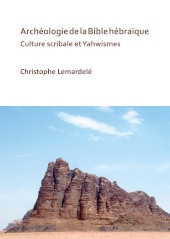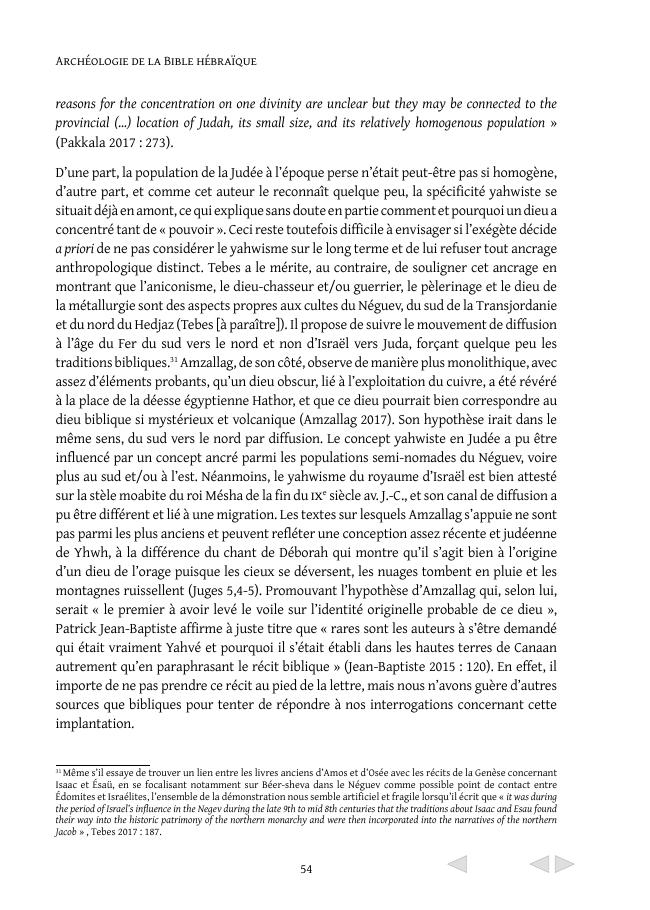Archéologie de la Bible hébraïque : Culture scribale et Yahwismes
128 p.
Since the Renaissance, the question of how the Bible was written has been much debated. Documentary theory of the end of the 19th century identified "authors" and schools of writing, paving the way so that, a century later, a complex reality emerged, that of scribes modifying texts as they copied them. Thus, "The Bible" no longer appears as a controlled theological and historiographical project but as the empirical arrangement of heterogeneous texts linked together by an evolving religious ideology. While the great overall account of the first books is based on the election and migration of an entire people, the ideological foundations of Yahwism evoke rather a foreign god who, having reached Israelite territory, ultimately gained pre-eminence there. This monotheistic ideology was above all an exclusivism that was to be reinforced from the time of the kings of Israel and Judah to the Judean revolts against Rome in the first centuries of our era. In our attempt to understand the nature and origin, as well as
the evolution, of this specific form of monotheism, which made of a jealous god the only God, we have relied predominantly on the concept of the "two yahwisms". This theory enables us to understand how a god allied with a people has also been a creative god of the universe and of all humanity. [Publisher's text].
-
Information
ISBN: 9781789692297



